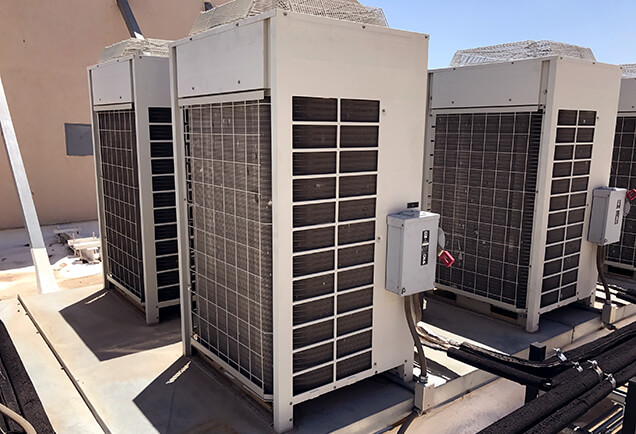What is the most important factor in HVAC?

In the sphere of HVAC (Heating, Ventilation, and Air Conditioning), several elements are essential for the right functioning and effectivity of the methods. While it's challenging to pinpoint a single most necessary factor, a quantity of key elements are paramount to contemplate:
1. Safety:
Safety is the highest priority in HVAC work. Technicians should adhere to security protocols to stop accidents, particularly when dealing with electrical components, gas techniques, and potentially harmful substances. Proper set up, upkeep, and restore procedures ensure the security of each technicians and occupants.

2. Proper Installation:
Correct set up of HVAC systems is vital. Proper sizing, precise installation of parts, and applicable ductwork design contribute to system effectivity, longevity, and performance. Incorrect set up can result in inefficiencies, frequent breakdowns, and better power payments.
three. Regular Maintenance:
Regular maintenance ensures HVAC techniques function effectively, preventing breakdowns and prolonging the system's lifespan. Routine duties like altering filters, cleansing coils, and inspecting components are essential for optimal efficiency and indoor air quality.
four. Energy Efficiency:
Energy efficiency is essential for decreasing environmental impression and lowering utility prices. High-efficiency HVAC techniques and proper insulation assist conserve vitality, making the system environmentally friendly and cost-effective for homeowners and businesses.
5. Proper Ventilation:
Effective air flow ensures the circulation of recent air, preventing the buildup of indoor pollution, controlling humidity, and selling a wholesome indoor surroundings. Air Conditioner Installation is important for indoor air quality and the occupants' well-being.
6. Indoor Air Quality (IAQ):
Maintaining good indoor air high quality is critical for occupants' health and luxury. HVAC techniques geared up with applicable filters, air purifiers, and ventilation methods help take away allergens, pollutants, and pathogens from the indoor air, improving IAQ.
7. Humidity Control:
Controlling indoor humidity is crucial for comfort and preventing points like mould progress and damage to furniture and electronics. Properly functioning HVAC techniques help preserve optimum humidity levels, especially in regions with fluctuating humidity.
8. System Balance and Airflow:
Balanced airflow ensures constant heating and cooling throughout the building. Properly balanced systems avoid uneven temperatures, guaranteeing every room receives sufficient heating, air flow, and cooling.
9. Knowledgeable and Skilled Technicians:
Having expert and educated HVAC technicians is indispensable. Experienced professionals can precisely diagnose points, perform efficient repairs, and offer useful suggestions for optimum system efficiency and energy savings.
10. Customer Education:
Educating prospects about their HVAC systems, including proper utilization, upkeep practices, and energy-saving tips, empowers them to make knowledgeable selections. Informed customers usually have a tendency to take steps to maintain their methods and use them effectively.
While these factors are all important, the synergy of these elements—safety, correct set up, common maintenance, vitality effectivity, air flow, indoor air quality, humidity control, system balance, expert technicians, and buyer education—ensures the efficient operation and longevity of HVAC systems, making them collectively the most crucial features of HVAC..
